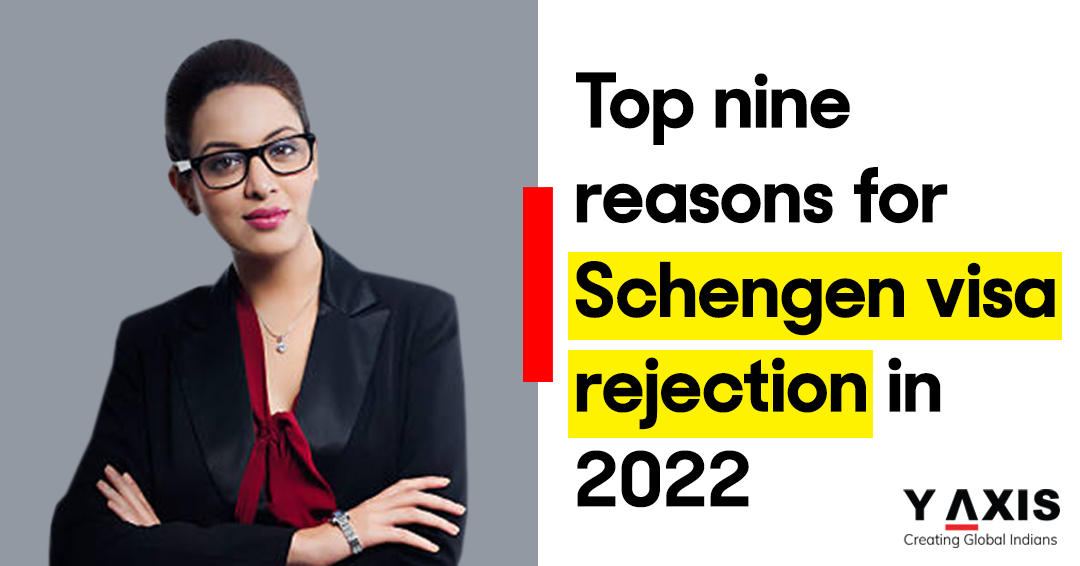
Individuals planning a trip to Europe for a vacation or to visit family and friends usually opt for Schengen visa. Under the current Schengen visa rules, you can now apply for the Schengen visa six months in advance.
The Schengen visa has often been termed as the hardest to get. So, the provision to let you apply for the visa six months in advance will help you know the fate of your application and plan your trip accordingly. The changes in the Schengen however does not mean you will get your visa easily. There could be many reasons why your Schengen visa could be rejected.
Here are the top nine reasons why your Schengen visa could be rejected in 2022.
1. Invalid or damaged passport
If you present a passport that is invalid, damaged or soiled along with your Schengen visa application, then there is every chance that your application will be rejected. If the pages are torn or missing, then your application will not be accepted. The application can be rejected if the passport has a validity date which is less than three months of the expiry date of the visa and the passport must not be older than ten years.
2. Providing false travel documents
If applicants present fake travel documents or provide false information, the visa can be refused. Being truthful about your Schengen visa application is very important. Trying to supply some false information or attempting to distort your identity or using a false identity can get your visa application rejected. If your details are checked, and if it is found to be false, your request may not only be denied, but you may also be barred from entering the Schengen region again.
3. Purpose of visit is not clear
Your documentation must fit the main purpose of the visit selected in the section of your visa application. For example, if your paperwork shows business intent, you cannot choose the tourist purpose in your application. Please check on this aspect so that your visa will not be rejected. Your reasons for travel should be supported with relevant documents.
4. Inadequate proof of having enough funds
It basically means that there is not enough money with you to fund your trip and stay in the Schengen countries. This is one of the key reasons behind the denial of the Schengen visa. You must provide documentation that you have the funds needed to cover your expenses while in the Schengen area.
This documentation includes:
- Evidence to prove you are financially self-sufficient- provide bank statements for a certain number of months that indicate your financial status. This includes your bank statements of the past six months.
- In case your trip is being sponsored, a letter from your sponsor indicating they will take care of your expenses during your stay in the Schengen area. This should be accompanied with the sponsor’s bank statement.
- A letter from your employer mentioning your salary
- Pay slips of the past three months
- Proof of hotel bookings, flight bookings during your stay
5. Insufficient travel insurance coverage
In the event of failure to provide travel insurance coverage for the entire period of the stay in Schengen, the Schengen visa application will be rejected. Other factors may be the lack of sufficient travel insurance coverage or not having adequate travel insurance to cover hospital treatment or repatriation to the home country during the visit can be a reason for rejection.
Your travel insurance must cover all your expenses for health and repatriation and should be valid for the entire Schengen region.
6. No proof of travel itinerary and accommodation
Lack of proof of flight booking, accommodation booking or the itinerary for each Schengen country that the applicant is visiting can be a reason for rejection.
If you do not present the correct itinerary of your journey within the Schengen region, you are liable to get your application rejected. For your planned destinations, you will need to have booked accommodation. Booked flight tickets (including internal flights & accommodation between the Schengen states) and travel tickets for each destination should also be available with the applicant.
7. Unfavorable Schengen visa situation
If you have overstayed on a previous Schengen visa or already have an active Schengen visa, your application will be rejected. And if within the current six-month period, you have already remained in the Schengen State for more than three months, you will not be provided with another visa and you must wait for six months after your return before you have filed a new visa application.
8. Criminal record
If the applicant has a past or current criminal record, then the visa is refused. If the visa officials believe that you have disturbing motives for visiting the country, or maybe you have previously been involved in some cases of fraud, your Schengen visa will be denied. It will be difficult for applicants with past allegations of terrorism, substance trafficking, child abuse, addiction and other serious crimes to apply for the Schengen visa.
9. Inconsistent signature
If your signature is inconsistent, that alone may be a justification for your application rejection. For instance, if your signature on the passport does not fit the signature on the visa application form, your application can be rejected.
If your application has been refused you still have a choice to appeal or reapply for the visa. Decisions on the refusal of the Schengen visa and grounds for refusal shall be notified by means of a standard form provided by the Embassy or Consulate which refused the visa. The reasons upon which the refusal was based will be included in the notice of the refusal. This will help you understand the grounds for rejection and help you avoid the reasons when you reapply for your Schengen visa.



Top nine reasons for Schengen visa rejection in 2022
Posted on March 19, 2022